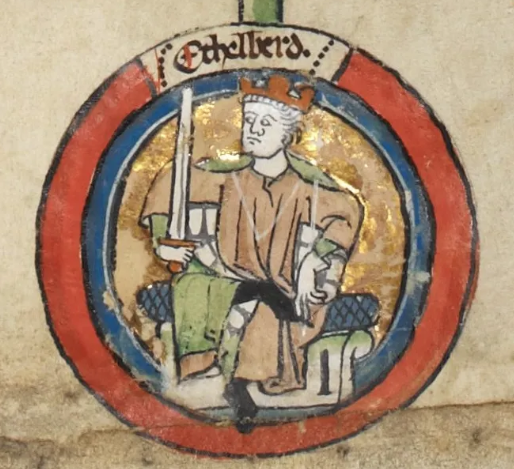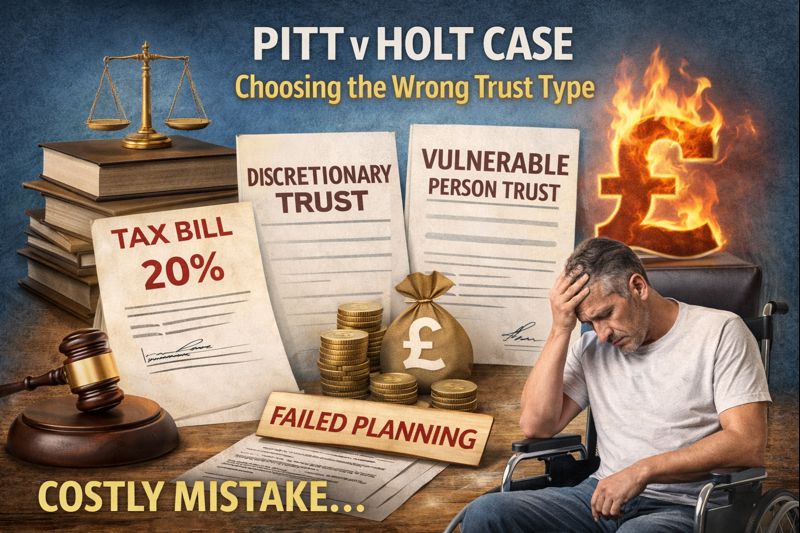From Æthelberht to Austerity: The Rise and Fall of English Justice
“If a man strikes another so that the bone is exposed, let him pay three shillings.”
— Law of King Æthelberht of Kent, c. 602 CE
England’s First Lawgiver
Picture Kent in the early seventh century. The Romans had long gone; the Saxons ruled a fractured island of small kingdoms. There were no courts, no solicitors, no paperwork, only chieftains, blood feuds, and the endless cycle of revenge.
Then came King Æthelberht of Kent, the first English monarch to convert to Christianity, and the first to set his laws to writing. Around 602 CE, he produced what we now recognise as the first written law code in English; ninety simple rules that laid the foundation for all that followed: compensation for injury, theft, and loss.
In those inked lines lies the seed of the common law, and arguably, the birth of English justice itself.
Part I – The Birth of Order: The Code of Æthelberht
Æthelberht’s code was brief, direct, and astonishingly fair for its time. It created a system of “wergild”; literally, man-price; a tariff of compensation that replaced vengeance with proportion.
Here are some of its precepts, translated from Old English:
“If a man slays another, let him pay 50 shillings.”
“If a man breaks another’s bone, let him pay three shillings.”
“If the eye be struck out, let him pay 50 shillings.”
•“If a freeman steals from the king, let him pay ninefold.”
“If a person commits adultery with another’s wife, let him pay the husband a fine.”
It wasn’t about morality, it was about order. In a world without police, the law wasn’t meant to punish; it was meant to restore peace.
Each law carried a precise payment. Each wrong had a price. It was simple, predictable, and, crucially, accessible. The people knew their obligations and their protections. Justice wasn’t locked behind clerks or courts; it was part of daily life.
Æthelberht’s genius was that he turned chaos into calculation. He replaced feud with fairness, revenge with recompense. That single decision, to write law down, made England governable.
Part II – From Shillings to Statutes: The Long March of the Law
From Æthelberht’s shilling-fines, the English legal tradition began its thousand-year evolution.
Alfred the Great (c. 890 CE)
Codified and expanded earlier laws, blending Christian ethics with practical justice, “to do right to all men, rich and poor.” His system began to resemble local courts: shire moots, hundred courts, and royal judges.
The Norman Conquest (1066)
William I centralised power. Justice became an arm of governance. The king’s courts developed, birthing the common law, “common” because it was common to the realm.
Magna Carta (1215)
For the first time, the monarch’s power was constrained by law:
“To no one will we sell, to no one deny or delay right or justice.”
A direct descendant of Æthelberht’s idea: justice must be predictable, not arbitrary.
The Tudor and Stuart Eras
Equity arose, a system designed to temper the rigidity of the common law. If the law was too narrow, the Court of Chancery could do what was “just.” The two systems, law and equity, merged centuries later, but this was the first recognition that justice sometimes needs discretion.
The Industrial Revolution
Law expanded. Property, commerce, and labour law exploded. Statutes multiplied. For every problem, a new Act of Parliament.
The 20th Century
The welfare state, human rights, and modern administrative law emerged, noble in aim, but increasingly bureaucratic in form.
The 21st Century
The law became digital, procedural, and remote. The spirit of Æthelberht; clarity, access, accountability, faded into the fog of modern governance.
Part III – The Bureaucratic Age: How Justice Broke
Fifteen centuries after the first English code, our justice system is collapsing under the weight of its own paperwork.
We have more law than ever, and less justice.
Court lists stretch for months. Legal aid is all but gone. Judges juggle impossible caseloads in buildings with no heating and failing Wi-Fi. Litigants in person fumble through online portals that crash before submission.
And the law, once the language of peace, has become the dialect of despair.
In The Secret Barrister’s unflinching words, “Our justice system is held together by goodwill, string and caffeine.”
The tragedy is not only delay but distortion. The courts are so overwhelmed that merit and mischief are treated alike. Vexatious litigants monopolise court time while genuine victims wait years for redress. Families collapse under procedural strain. Defendants plead guilty to crimes they didn’t commit just to escape limbo.
And when the system fails, it rarely compensates. The Crown’s mistakes are defended to the last pound of public money, while victims of false accusation or wrongful conviction are left ruined.
Justice, once the beating heart of the rule of law, has become an administrative department.
Part IV – The Lessons of Æthelberht
What made Æthelberht’s code remarkable wasn’t its severity, it was its clarity. Everyone knew the rules. Everyone knew the price. There were no hidden processes, no £355 application fees, no judicial backlogs.
His laws were anchored in community and designed to restore peace, not accumulate paperwork.
Our modern obsession with complexity has made the law alien to those it governs. Citizens don’t see it as theirs anymore. It’s something done to them, a bureaucratic labyrinth rather than a moral compass.
In many ways, we have inverted Æthelberht’s achievement: we have law without peace.
Part V – How We Could Fix It
It’s easy to despair, but there are fixes, practical, not utopian. They require political courage and financial realism, not slogans.
1. Fund the Base
Justice isn’t a luxury. Courts, judges, clerks, and legal aid must be treated as civic infrastructure.
Without them, every law on the books is just ink.
2. Filter and Focus
Introduce early triage for hopeless or vexatious claims.
Restore proportionality: not every dispute deserves a trial, and not every wrong needs ten hearings.
3. Simplify Procedure
Rewrite the Civil Procedure Rules in plain English.
Digitise intelligently, not by replacing humans with broken portals, but by supporting them.
4. Accountability and Transparency
Hold institutions to account for delay, neglect, and error.
Publish data, enforce discipline, and end the culture of “computer says no.”
5. Cultural Change
Rebuild trust between courts and citizens.
Make mediation and restorative justice normal, not niche.
Bring compassion back to the process.
6. Legislative Restraint
Fewer, clearer laws. Each new statute should be justified by cost, clarity, and necessity.
We need less legislative vanity and more legislative virtue.
7. A Permanent Justice Commission
Independent, non-partisan, with one remit: to keep the system functional.
We don’t let politicians decide interest rates; why do we let them dismantle justice?
Part VI – The Price of Peace
Æthelberht believed peace had a price, three shillings for a broken bone, fifty for a life. He understood that society must value justice, or it collapses into blood feud.
Fifteen hundred years later, we still speak of “the price of justice,” but now it’s metaphorical, and it’s one we seem unwilling to pay.
The rule of law, the jewel of English civilisation, is tarnished not by malice but by neglect.
If the ancient king could buy peace with silver, surely a modern democracy can fund its courts with sense.
The first English lawgiver understood what we’ve forgotten:
justice isn’t self-sustaining — it’s paid for.
The Ghost in the Courtroom
If Æthelberht could walk through a modern Crown Court, he’d find a familiar principle buried beneath the bureaucracy: the idea that law exists to stop the strong from devouring the weak.
But he’d also see that we’ve buried that principle under reams of self-importance.
The king who once counted justice in shillings might look around our exhausted courts and wonder aloud:
“You have more words than I ever dreamt of, and yet less peace than I ever knew.”
Maybe it’s time to remember where we began, and how far we’ve strayed.














Post Comment